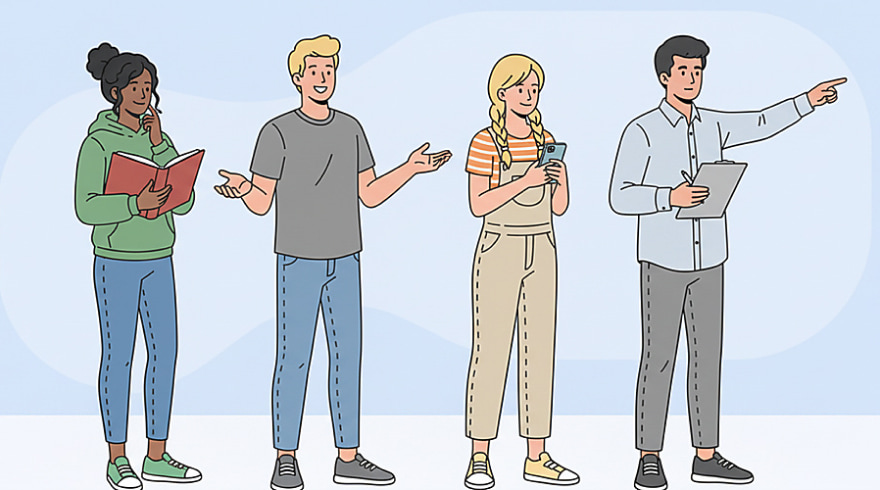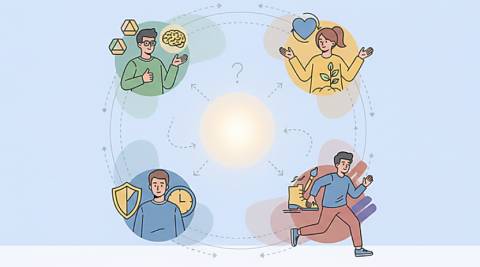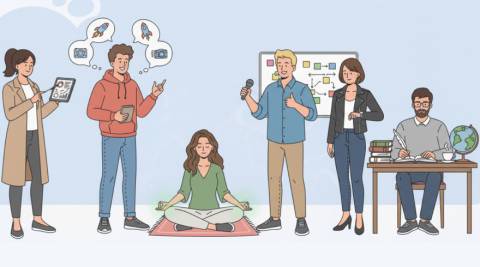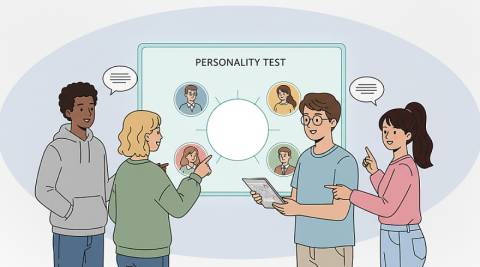Understanding Yourself Through the Myers-Briggs 16 Personality Test

The Myers-Briggs 16 personality test is a popular tool used by millions to better understand themselves and others. This test categorizes individuals into 16 distinct personality types, each described by a combination of four letters. These letters represent different psychological preferences, such as introversion versus extroversion. Initially developed by Isabel Briggs Myers and her mother Katharine Cook Briggs, the test has become a standard for personal and professional development.
This tool is a powerful asset, providing profound insights into your unique perspective and the ways you navigate decision-making processes. By using the 16 personality types Myers-Briggs test for free, you can delve deeper into self-awareness. This instrument not only reveals how you interpret the world around you, but also equips you with a better understanding of your strengths and potential areas for growth. Whether you're applying it for career development, relationship insights, or personal growth, the Myers-Briggs test for 16 personalities can be a valuable asset.
The Origins and Development of the 16 Personality Test by Myers-Briggs
The origins of the 16 personality test by Myers-Briggs trace back to the early 20th century. Influenced by Carl Jung's theory of psychological types, Katharine Briggs and her daughter, Isabel Myers, aimed to make these theories accessible to a broader audience. They crafted what is now known as the Myers-Briggs Type Indicator (MBTI).
The MBTI was designed with the belief that understanding personality differences could lead to better communication and harmony among people. Over the decades, it has undergone numerous revisions and testing to ensure its validity and reliability. The Myers-Briggs 16 personality test remains relevant today, with continuous research and adaptations keeping it up-to-date with psychological advancements.
How the 16 Personalities Myers-Briggs Test Works
- Introversion (I) / Extroversion (E)
- Sensing (S) / Intuition (N)
- Thinking (T) / Feeling (F)
- Judging (J) / Perceiving (P)
The Myers-Briggs 16 personalities test evaluates where you fall in each of these dichotomies. For example, the Myers-Briggs 16 personalities test for free offers unique insights into your personality type. It may categorize you into one of the many types, like INFJ or ESTP, among others, each representing a distinct pattern of behavior, preferences, and perspectives that reflect your unique personality.
With each of these dimensions, the 16 personalities quiz by Myers-Briggs delves into how you interact with the world, process information, and make choices. This comprehensive approach aids in understanding your core attributes more deeply.
Benefits of the Myers-Briggs Personality Test
Utilizing the Myers-Briggs personality test for 16 personality types offers several benefits:
- Self-awareness: Gain deeper insights into your motivations and behaviors.
- Improved relationships: Better understand others’ perspectives and improve communication.
- Career guidance: Identify roles and fields that align with your strengths and preferences.
- Personal development: Foster growth by recognizing areas for improvement.
Furthermore, the Myers-Briggs 16 personality test for free access makes it widely available, allowing more individuals to unlock these valuable insights.
Selecting the Right Version
The market offers both free and paid versions of the Myers-Briggs 16 personalities test. A common question is whether to opt for a paid version. While paid versions might provide more detailed reports, many find the 16 personality test by Myers-Briggs for free to be sufficient for initial insights.
Those exploring the test for casual self-exploration often start with a free option. However, for those looking into extensive development programs, a more detailed paid analysis might be beneficial. Either way, starting with a version of the 16 Myers-Briggs personality test can pave the way for personal discoveries.
Common Applications of the Myers-Briggs 16 Personality Test
The test is versatile, finding its place in various fields:
- Corporate environments: Enhance team dynamics and efficiency.
- Educational sectors: Assist students in career planning and personal growth.
- Therapy and counseling: Offer a basis for understanding client behaviors and preferences.
The Myers-Briggs 16 personality test is treasured for its ability to provide a common language for understanding personality differences, fostering empathy and collaboration in numerous contexts.
Sample of the 16 Personality Types
| Type | Description |
|---|---|
| ISTJ | Detail-oriented and fact-focused, values tradition and loyalty. |
| ENFP | Creative and enthusiastic, thrives on new ideas and possibilities. |
| INFJ | Idealistic and visionary, committed to helping others. |
| ESTP | Energetic and flexible, excels in dynamic environments. |
FAQs About the Myers-Briggs Personality Test
- What is the Myers-Briggs 16 personality test?
The Myers-Briggs 16 personality test is a psychological tool that categorizes individuals into 16 personality types based on four dichotomies.
- How long does the 16 personality test by Myers-Briggs take?
Typically, the test takes about 10-20 minutes to complete, though this can vary based on the version you choose.
- Can I access the Myers-Briggs 16 personality test for free?
Yes, there are various platforms online offering the Myers-Briggs 16 personality test for free with basic results.
- How accurate is the 16 personalities Myers-Briggs test?
The accuracy varies, but many find it a reliable tool for understanding personality preferences, especially when professionally administered.
- Can the Myers-Briggs 16 personalities test change over time?
While your core personality is likely stable, certain traits might fluctuate due to life experiences and personal growth.
Latest News



